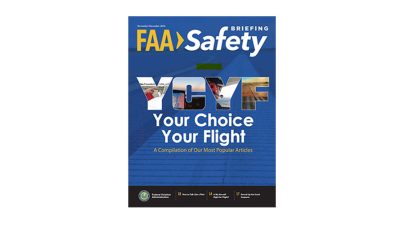For flight instructors, the FAA has introduced a significant update that eliminates the expiration date on Certified Flight Instructor (CFI) certificates. This change, effective October 2024, represents a shift toward a more streamlined and efficient system while maintaining the high standards required of aviation educators. Here’s everything you need to know about these updates, including where to find the official documents.
What Changed?
Previously, CFI certificates had an expiration date, requiring instructors to renew their credentials every 24 months. With the new rule, expiration dates are no longer printed on CFI certificates. Instead, the focus has shifted to ensuring currency through qualifications and activity rather than an arbitrary time limit.
CFIs will still need to demonstrate competency and maintain their qualifications, but the bureaucratic hurdle of certificate renewal has been removed. This change aligns CFIs more closely with other FAA certificate holders, like pilots and mechanics, whose certificates don’t expire but require adherence to recency requirements.
Why the Change?
The FAA aims to reduce administrative burdens while enhancing the emphasis on maintaining proficiency. This shift allows instructors to focus more on providing quality training and staying current with aviation standards.
The change also acknowledges advancements in aviation training resources and technology, which support ongoing education without the need for frequent reissuance of certificates.
How Does This Affect You as a CFI?
- No More Expiration Dates
Your CFI certificate will now be issued as a plastic card without an expiration date. However, you must still comply with recency and competency requirements, as outlined in the updated regulations. - New Requirements for Activity Tracking
Instructors must maintain activity records or complete a Flight Instructor Refresher Course (FIRC) to demonstrate proficiency. The FAA’s goal is to ensure instructional quality remains high without unnecessary administrative renewal steps. - Transition Process
Existing certificates with expiration dates will remain valid. When CFIs update their certificates (e.g., due to a rating addition), the new plastic certificate without an expiration date will be issued.
Where to Find the Updated Documents
- FAA Ruling and Detailed Explanation
The Federal Register outlines the rule changes in detail:
Removal of Expiration Date on a Flight Instructor Certificate - Advisory Circular AC 61-65J
The new AC 61-65J provides guidance on qualifications and activities required for CFIs:
Advisory Circular AC 61-65J
FAQs About the CFI Certificate Changes
Q1: Do CFIs still need to complete a Flight Instructor Refresher Course (FIRC)?
Yes. While certificates no longer expire, CFIs must complete a FIRC or demonstrate instructional activity to remain current and legally authorized to instruct.
Q2: Will I automatically get a new certificate without an expiration date?
No. Your current certificate remains valid until you request a replacement (e.g., when adding a rating) or are issued a new certificate through other updates.
Q3: How do I prove my instructional activity?
You’ll need to maintain accurate records of training activities, such as endorsements, student recommendations, and logged flight instruction hours.
Q4: What happens if I don’t meet the recency requirements?
If you fail to meet the activity or refresher requirements, you won’t be authorized to instruct until you comply with the outlined standards.
Q5: How do these changes align with FAA standards for other certificates?
This update brings CFIs in line with other FAA certificate holders, emphasizing proficiency and currency rather than periodic renewal.
Q6: Where can I learn more about maintaining my currency under the new rules?
Check out the updated Advisory Circular AC 61-65J for detailed guidance.
This is an exciting step forward for CFIs, reducing administrative burdens while maintaining the rigorous standards that keep aviation safe. Be sure to review the updated documents and adjust your practices to stay compliant under the new system.



